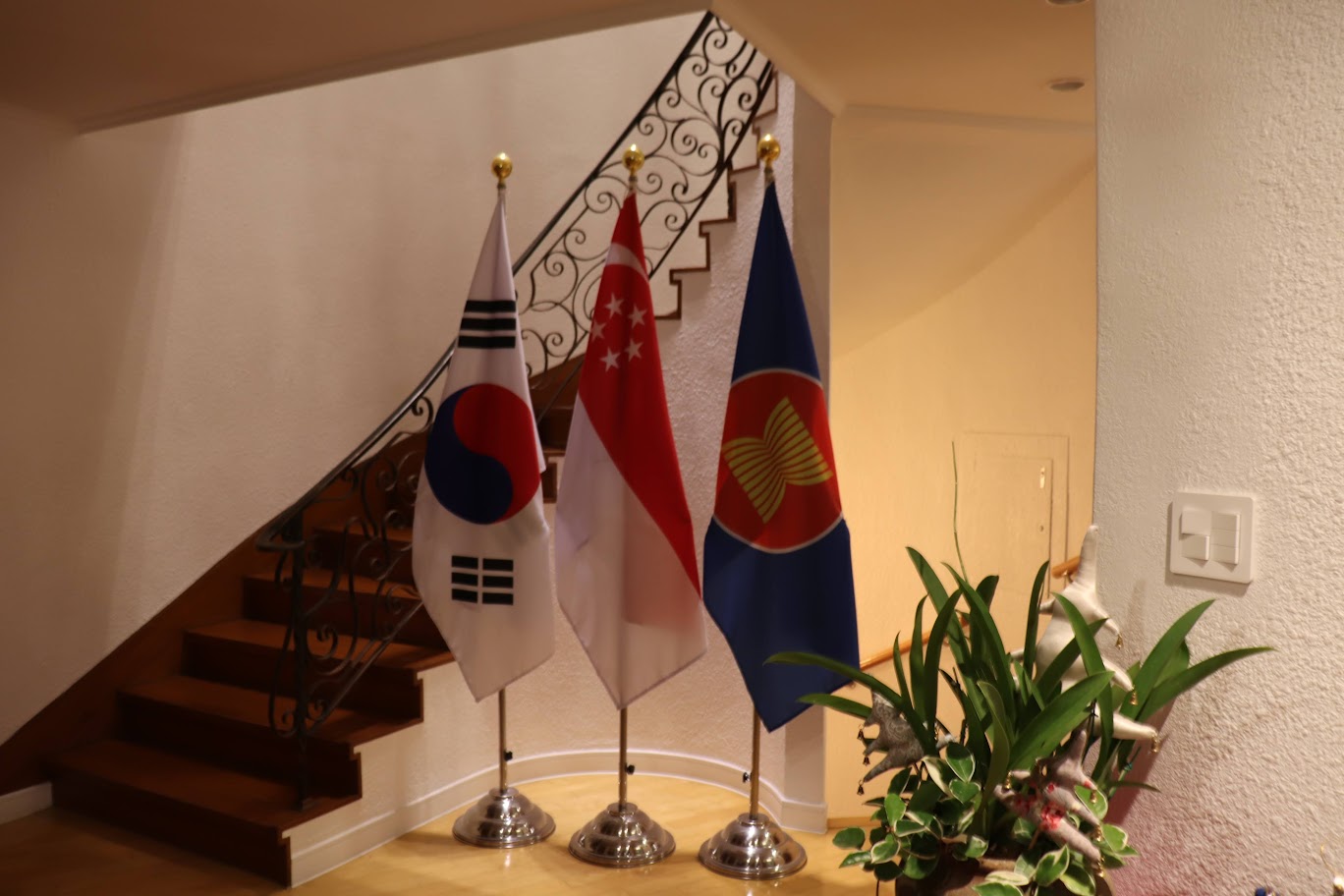
Home > CICI News > What’s New

| Title | Korea CQ - Epilogue of 'Present and future of K-Culture' by Ahn Ho-sang, CEO of Sejong Center for the Performing Arts | ||||
|---|---|---|---|---|---|
| Posted by | webmaster | Hit | 486 | Date | 2022.11.24 |
| Files | |||||
Dear Korea CQ members, On November 22, we had a special lecture about 'Present and future of K-Culture' by Ahn Ho-sang, CEO of Sejong Center for the Performing Artsat the Singaporean Ambassador’s Residence in Seoul. H.E. Eric Teo, Minjae Kim, H.E. Michael Reiffenstuel, H.E. Dagmar Schmidt, H.E. Maria Castillo-Fernandez, H.E. Ekaterini Loupas, Stéphane Deblaise, Chen Si, Ahn Ho-sang, Ian Jung, Seungju Baek, Younjung Park, James Park, Jackie Son, Youngha Go, Joseph Yang, Youngjoo Lee, Myunghee Oh, Jungwha Choi, Didier Beltoise, Crystal Park, Gayoung Park, Dong Sun-hwa attended this forum. The Singaporean Ambassador gave a warm welcome and thanked everyone who came. 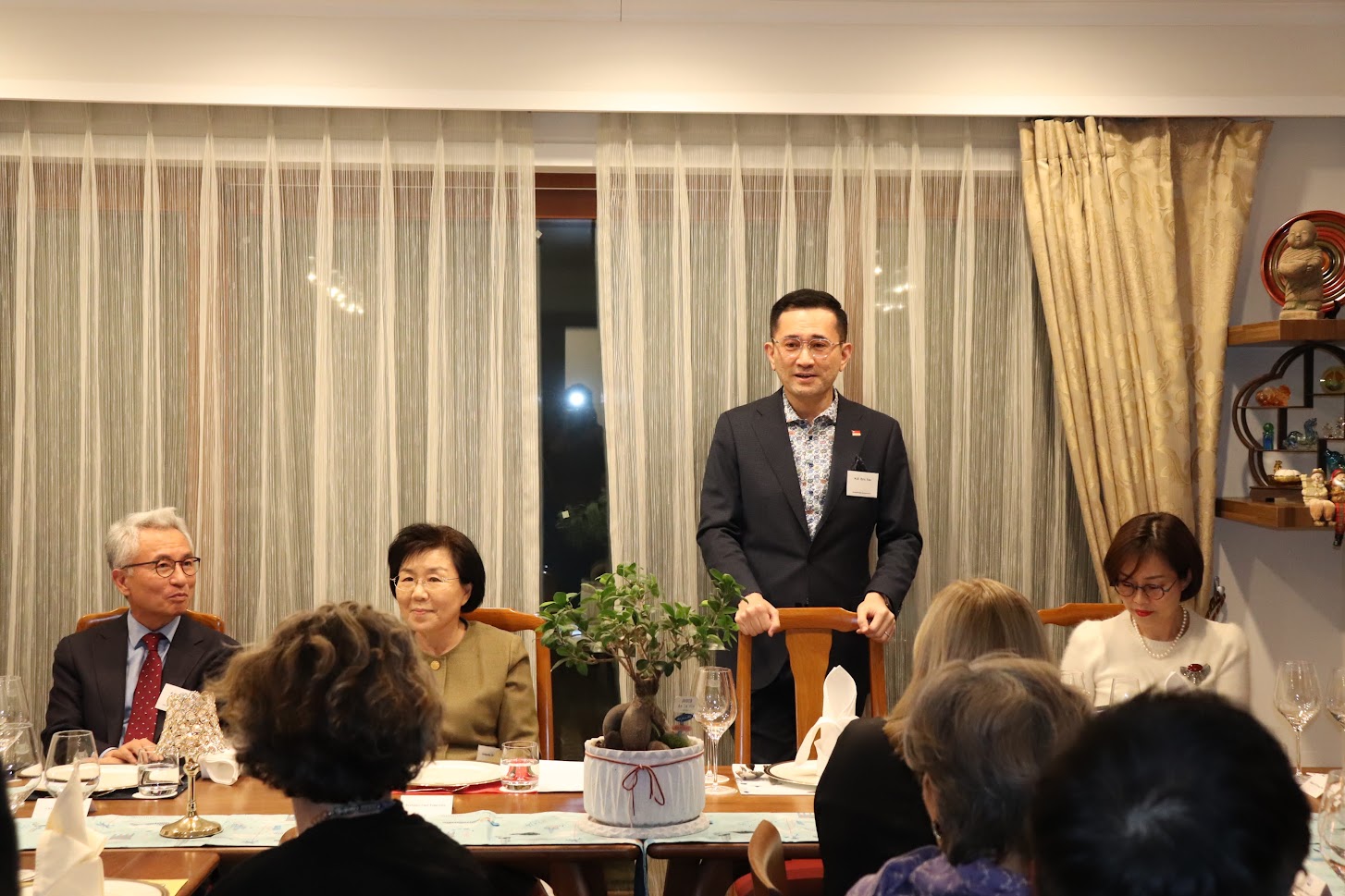 We had a pleasant evening with Mee-Goreng, Chilli Crab, Cereal Prawns, Mocha Pork Ribs, Sambal Morning Glory and flavorful champagne prepared with great care by the the Ambassador's spouse and a fine Singaporean restaurant. 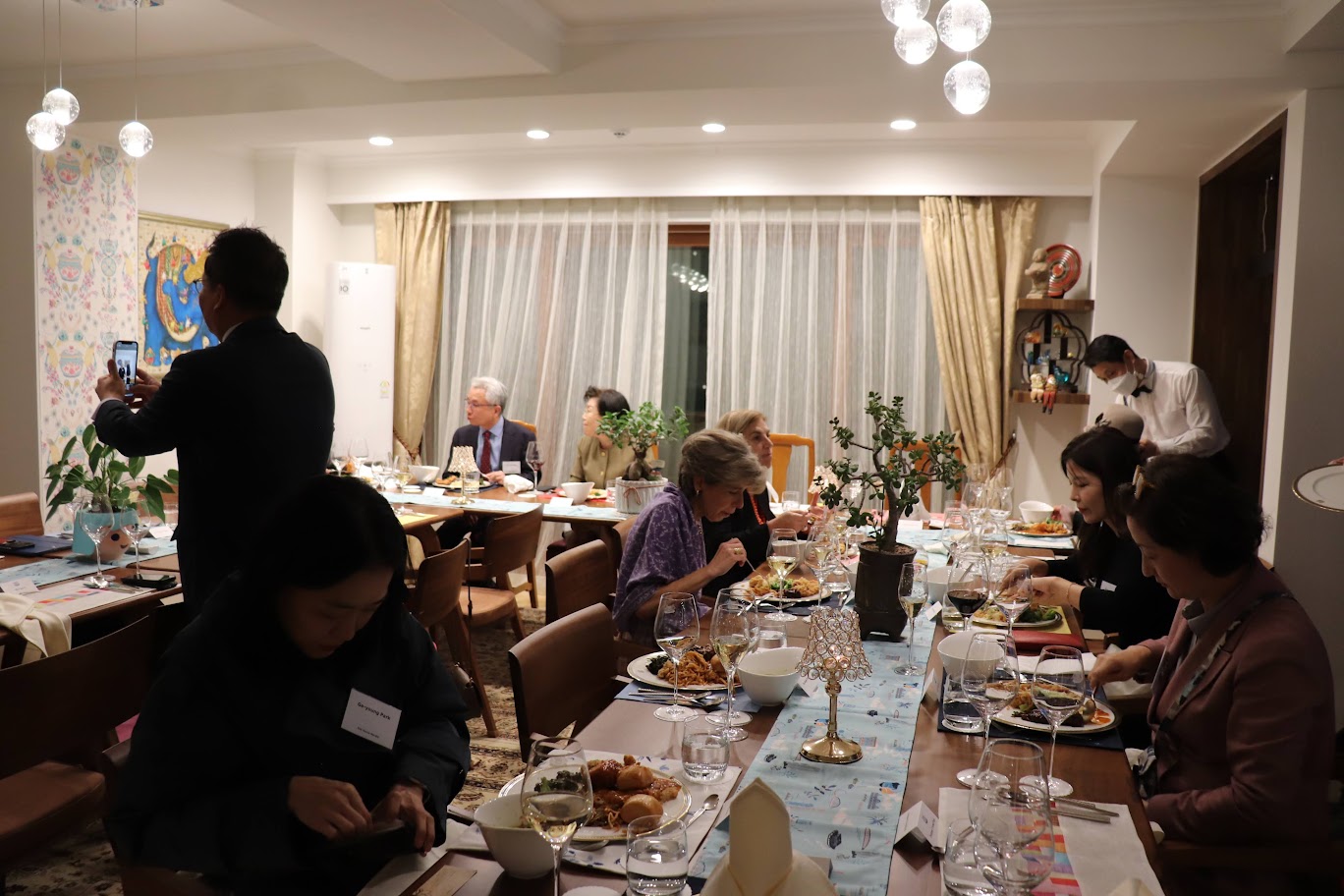 After the meal, Ahn Ho-sang, CEO of Sejong Center for the Performing Arts gave us a lecture on 'Present and future of K-Culture'. 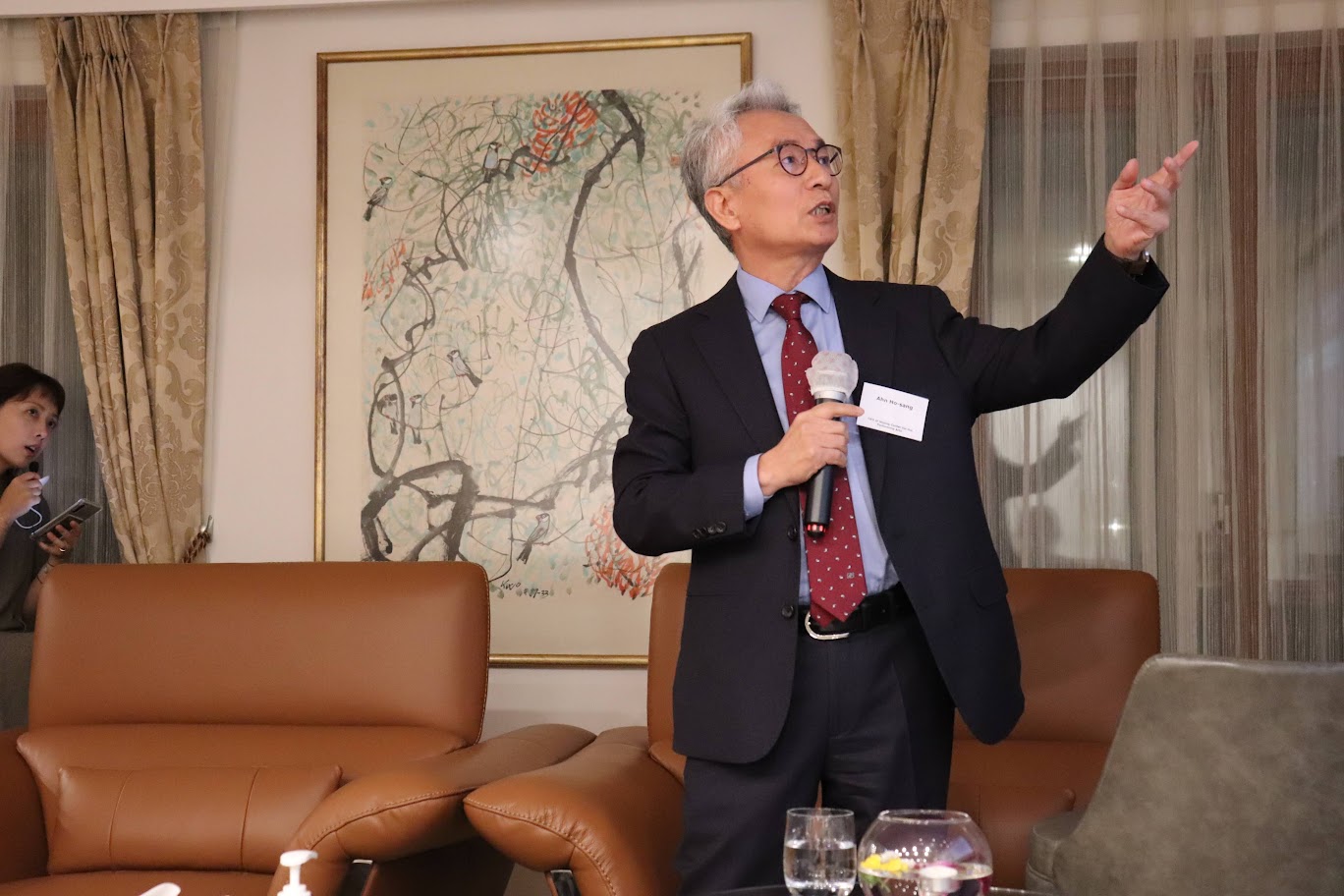 Ahn Ho-sang who served as Director of Art Business in Seoul Arts Center, President of Seoul Foundation for Arts and Culture, Director of National Theater of Korea and Dean of the Graduate School of Performing Arts at Hongik University clearly explained the secret to the popularity of the Korean Wave and the competitiveness of K-content with examples. 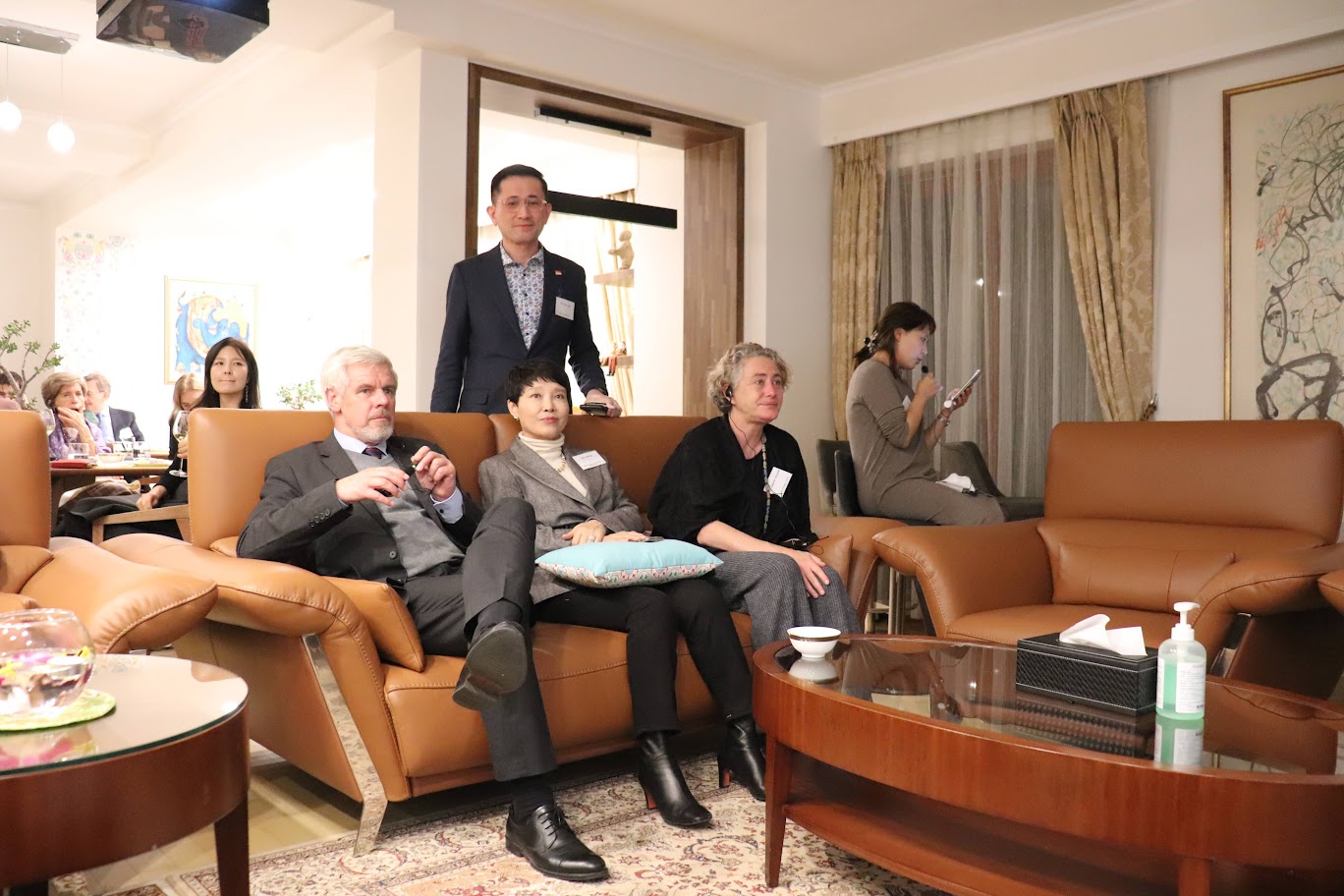 A lively Q&A session followed the lecture. We would like to thank Ahn Ho-sang who gave an informative lecture for members and H.E. Eric Teo and Minjae Kim for inviting members to their residence for this wonderful gathering. We would also like to express thanks to all members who attended despite their busy schedules, as well as Crystal Park for her interpretation help. 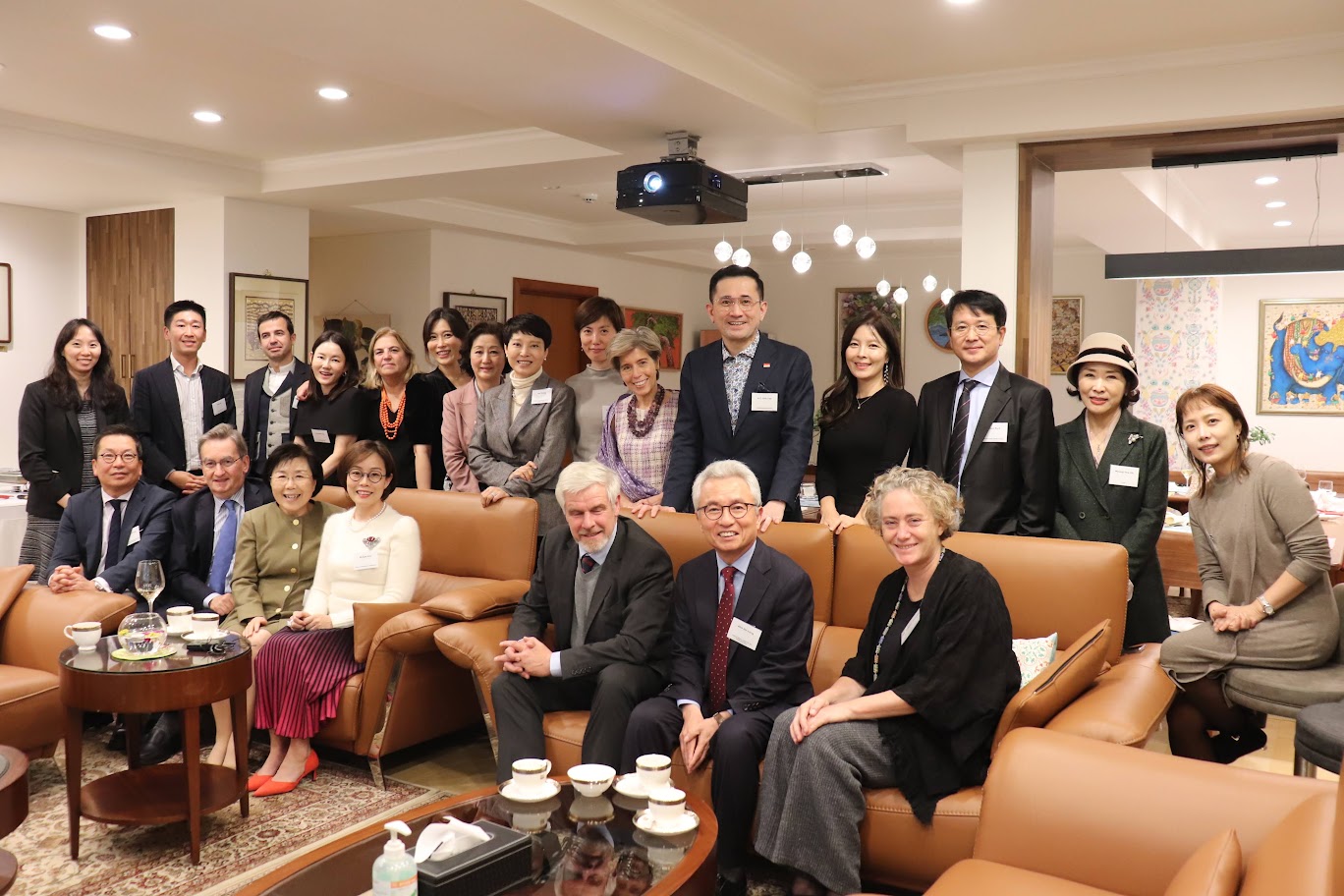 For more pictures, please click the link below. Present and Future of K-Culture – by Ahn Ho-sang, CEO of Sejong Center for the Performing Arts Do you know
exactly what the Hallyu is? Hallyu is a cultural phenomenon in which Korean
popular culture is spread and consumed overseas. Starting with dramas in the
late 1990s, Hallyu began to be known, and since 2010, K-pop has been leading
the trend. The
Hallyu Korean wave is not just here to stay — it was reborn as a
Brand-new Hallyu with new content development and overseas expansion in more various
regions. Despite the COVID-19, the increase in consumption of Korean cultural
contents such as dramas, entertainment, and gamesfully reveals the powerful
influence of the Hallyu. Then, what is
the secret of Korean cultural contents being so popular and loved around the
world? First of all, it’s the overwhelming share of K-film and K-pop in the
domestic market. In the ranking of all-time Korean releases, only 5 out of the
top 20 are foreign films. And in the top 10 Korean Netflix viewing rankings in
2022, there are only 2 foreign films in the film sector, and no foreign
programs in the TV sector. Looking at last week's Melon chart, Charlie Puth’s
Attention was the only pop song in the top 50, and Justin Bieber was the only
foreign singer to be ranked 9th in the top 20 Korean YouTube views. I think
creative and high-quality contents owe to the solid demand of Koreans who love Korean
movies and music. And then, most
foreign films are sci-fi or action films to target the global market. Marvel
and Disney dominate the screen. On the other hand, Korean films are mostly
dramas and comedies, which satisfied viewers looking for emotional empathy. Although
the Korean market is incomparably smaller than the US market, Korean movie’s
unique story is enough to be loved around the world. Lastly,
Hallyu was influenced by Korea's palli-palli (hurry-hurry) culture. Internet
connection spped is also the fastest in the world. Koreans tend to be
hot-tempered, so they collaborate a lot with other producers to create various contents
quickly. In Korean society, people compete with each other at speed, and as a
result, the Korean cultural industry has also developed rapidly. In Korean
society, there is a speed competition, and because of this tendency, the Korean
cultural industry was able to develop rapidly. And as the domestic market
became saturated, Koreans quickly turned their attention to overseas markets. I think the solid
demand of Koreans who love Korean contents, unique and creative stories, and
the fast and competitive culture of Korean society have a great influence on
the growth of K-culture in the future. |
|||||











